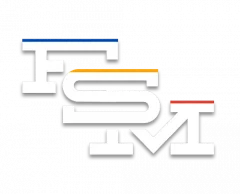Apple’s iPhone marketing chief will square off against the Electronic Frontier Foundation and others Friday as the U.S. Copyright Office considers whether to allow an exemption to the U.S. Digital Millennium Copyright Act (DMCA) that would permit jailbreaking. Vice President of iPod and iPhone Product Marketing Greg Joswiak is set to testify Friday afternoon in Palo Alto, California, as the Copyright Office holds the first in a series of hearings on possible exemptions to the nation’s copyright law.
The office holds these hearings every three years. In the past it has granted copy exemptions to people such as college film professors who want to make compilations for their students or users of obsolete software who need to copy their programs to new media formats. This year marks the first time the office will hear arguments about the iPhone, however, and Apple is doing its best to stop the jailbreakers.
It has hired well-respected Fenwick & West intellectual property lawyer David Hayes to represent it at the hearing, and has filed a 27-page legal brief (pdf) arguing that legalizing jailbreaking would lead to “copyright infringement, potential damage to the device and other potential harmful physical effects, adverse effects on the functioning of the device, and breach of contract.”
An Apple spokeswoman declined to comment on the matter. Although it has not prosecuted hackers who have developed jailbreak software, Apple maintains that the practice violates the DMCA, which prohibits the circumvention of copy control mechanisms.
Technical users have been jailbreaking the iPhone since soon after it was released two years ago, despite Apple’s best efforts to make it impossible. Apple strictly controls what software can run on the iPhone, but jailbroken phones have no such restrictions.
The problem is that the iPhone’s digital rights management system not only prevents people from illegally copying its software, it also blocks legitimate users who want to run software on the device that is not approved by Apple, according to EFF attorney Fred von Lohmann. “When an iPhone owner jailbreaks her iPhone, no copyrights are infringed,” he said in an e-mail message. “Granting an exemption will not reduce the availability of iPhone firmware or apps – in fact, it’s likely to increase the availability of both, by creating a more competitive, vibrant, consumer-driven marketplace.”
If the EFF wins its case, users will not only be able to jailbreak the iPhone without running the risk of facing a DMCA lawsuit.
They’ll be able to legally bypass similar technology on other phones too, such as T-Mobile’s Android-based G1 phone. The Copyright Office isn’t expected to make a decision on the jailbreaking issue until October, von Lohmann said, but even if Apple loses, Apple could still decide to go after jailbreakers, saying they violated their iPhone license agreement.
“But an exemption would be a significant step toward legalizing jailbreaking,” he added. Whatever happens, these arguments will probably be made again in 2012. DMCA exceptions have a shelf life of three years.


